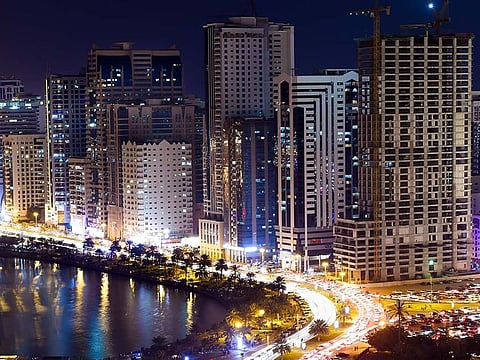True Shariah-based investing should look beyond the obvious exclusions
Middle East based investors are primed to look deeper into ESG-focussed funding

Last year, our team actively engaged with a Chinese sportswear company. We had owned the stock for over four years, and it had been one of our best performers. But over time we became increasingly anxious about reports coming through on the possible use of forced labour in the cotton supply chain.
We began talking to the company, as we wanted more details about its suppliers. However, after much back and forth, we couldn’t get the assurances we needed, so we felt we had no choice but to divest.
A few months later, our team had the opportunity to take on a new Shariah-compliant EM equities mandate. As I glanced through the companies included in the MSCI Islamic Index, one company in particular jumped out at me: the same sportswear company we had recently divested in. And that got me thinking – why wouldn’t Islamic investing consider labour rights too?
Looking at ‘how’, not just ‘what’
Most typical Shariah-compliant equity funds focus solely on exclusion. They use a mechanical screening process to identify and exclude companies that produce forbidden products, as well as conventional banking, finance and insurance. Shariah funds rarely go beyond this initial screening process, neglecting to additionally consider how their products or services are produced.
This screening seemed like a low bar to me.
Shariah funds
Perhaps this could go some way in explaining why Shariah-compliant equity funds have struggled to grow. Muslims account for a quarter of the world’s population, but less than 0.2 per cent of assets under management are Shariah-compliant. Meanwhile, sustainable funds are capturing almost a third of all inflows into mutual funds and ETFs.
While investors in Asia and the Middle East are sometimes perceived as lagging behind the West in terms of ESG considerations, data actually suggests that sustainability and climate change is often a greater consideration in Asia and the Middle East than other areas of the world.
Reflecting the true values
I thought about what I would want from an Islamic fund. Sure, I would want exclusions, but I would also want more. I remembered my Quran studies as a child, being taught the concepts of Halal (lawful/permissible) and Tayyib (good/ethical), and how you can’t just focus on one without the other.
I also learnt sayings of Prophet Muhammed (PBUH): ‘Pay the worker his dues before his sweat has dried up’; ‘Those workers are like your brothers’. To me, it’s obvious that God would want workers to be paid fairly and not to be mistreated.
It’s not just labour rights. There are many other companies included in major Shariah-compliant equity indices that could be viewed as problematic, including several oil and gas companies. As these companies are ‘Halal’, they are automatically included in Shariah indices.
By including these companies without question, we could risk overlooking the fact that of course God wants us to take care of the planet too: ‘Walk gently upon the earth’ (Quran 25:63); ‘The earth is green and beautiful, and God has appointed you his stewards over it’ (Hadith).
Our approach
ESG considerations have been a key part of our team’s investment process for many years. We don’t just rely on ESG screens or third-party scores – we take an active approach. Only through direct engagement are we able to build a clearer picture of a company.
Through ongoing discussions with the companies we’re invested in, we can encourage positive change, while avoiding businesses that do not align with our beliefs.
And to me, this approach makes perfect sense for Shariah investing too. That’s why our Shariah mandate goes beyond a simple exclusions screen, to look closely at the companies we hold to understand their social and environmental impact as well. By considering whether a company is not only Halal but also Tayyib, such an approach can better reflect the values and principles of Islam.




